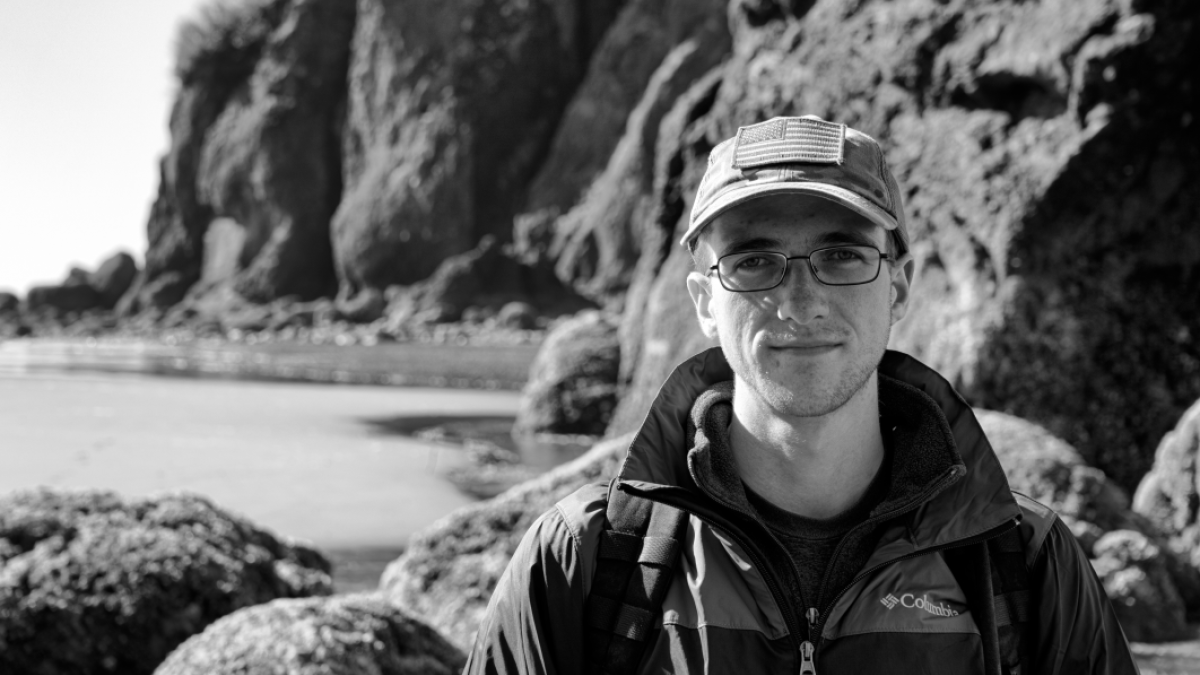Students climb military ranks with language skills

Benjamin Harris found career opportunities through the School of International Letters and Cultures, study abroad and ROTC.
Arizona State University seniors Benjamin Harris and Brittany Diaz, both majors in Russian at the School of International Letters and Cultures, studied overseas with Project GO and are members of the Air Force ROTC Detachment 025.
Harris and Diaz serve as the cadet wing and vice wing commanders, and they had the opportunity to study abroad, which helped them reach some incredible milestones. While overseas, they learned how language plays a vital role in the military and is extremely beneficial knowledge, opening up a variety of career opportunities.
“Regardless of what branch you serve in, the United States military is aiming to develop more coalition initiatives with our allies abroad. … In general, knowing a foreign language is extremely useful, it opens up avenues of opportunity, it helps your unit build better alliances,” Harris said.
To prepare for a career in the military, Air Force ROTC gave scholarships to Harris and Diaz to study abroad and integrate with civilian students, developing intercultural communication and language skills.
“Learning a language from the ground up, starting from the alphabet and learning how to speak all over again, it shows you how much you don’t know about the world,” Diaz said.
Harris was studying Arabic at the time, and had the opportunity with Project GO to travel to Amman, Jordan, drastically improving his speaking skills in just two months. For Harris, the best way to study a language is diving right in and speaking with locals. While in Aqaba, Jordan, he mediated a sale between a Russian speaker and an Arabic salesman.
Diaz went to Bishkek, Kyrgyzstan, where she lived with a host family. She credits the outstanding professors at the School of International Letters and Cultures, specifically Professor Donald Livingston and Professor Saule Moldabekova, for their dedication toward providing a well-rounded education.
“It doesn’t matter where you start, what experience you have, as long as you start it and put in your own effort outside of just class and everything to advance. You just have to want to do it,” Diaz said.
Britanny Diaz.
Diaz explained that a big part in creating relationships overseas is trying to understand people's language and their day-to-day lives. The locals are appreciative and respectful when visitors build a rapport and try to understand their perspectives.
“It’s mind blowing to know that there’s that much in the world you don’t know about yet. When I went over there, I thought, ‘I’ve never done anything like this in my life.’ There’s people that are going to go their entire lives without doing something like this and I’m doing it when I’m 20,” Diaz said.
Learn more about the School of International Letters and Cultures' study abroad program.
More Local, national and global affairs

Overdose crisis involves more than opioids, says ASU social work professor
News coverage about the escalating number of drug overdoses in the United States can lead many to conclude that so long as you’re…

What’s next for unions? ASU center investigates evolving strategies in new report
Port workers hanging up their hats on the East Coast. Starbucks employees putting down their aprons before Christmas. Ski…

Protecting national security in a rapidly changing world
As the 21st century dawned, the challenges facing our nation and the world — such as cyberthreats, resource scarcity and space…
